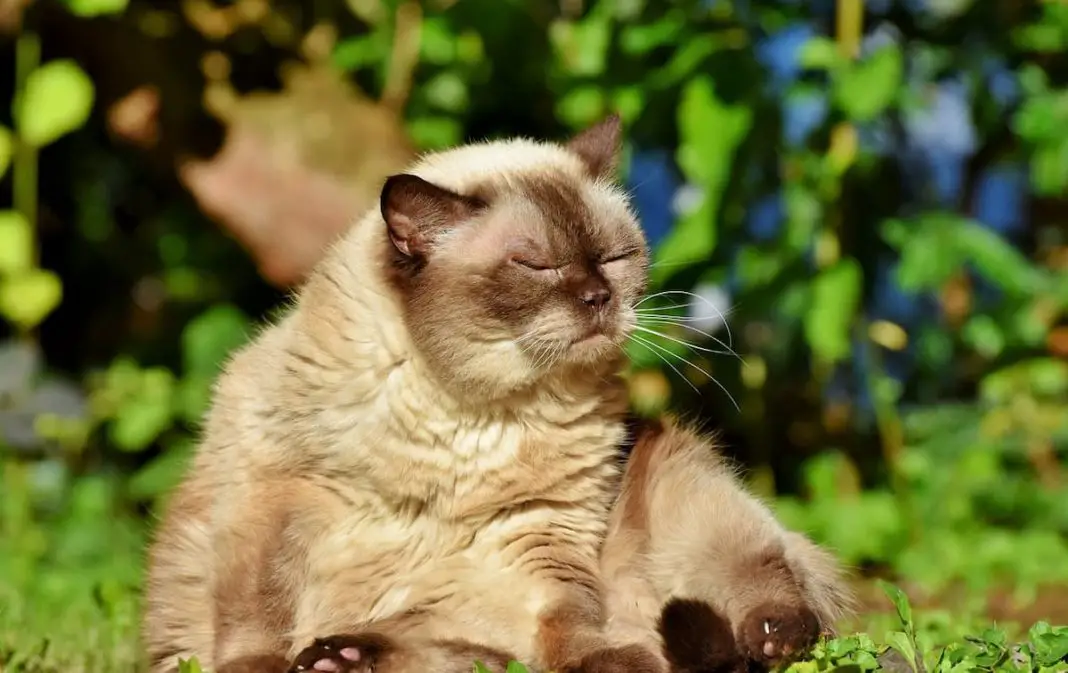Do British Shorthair Cats Need A Companion?
If you’ve ever looked at your British shorthair cat and have felt guilty for leaving them alone for the day, you’re not alone. But is your cat really lonely when you leave the house? Does your cat need a companion? Do British shorthair cats need a companion?
Can Your Cat Get Lonely?
In short, yes, all cats get lonely at some point. But perhaps not as much as you would think. It’s possible for your cat to experience some loneliness and boredom depending on his personality and the cat’s behavioral patterns. It’s important that cats and dogs get a good amount of exercise, stimulation, and social interaction to feel at their best, but, unlike dogs, cats are more solitary in nature, and will generally be just fine if you leave them on their own for a while.
How Can I Tell If My Cat Is Lonely?
While a lot of cats often prefer to be alone, some cats could possibly demonstrate some signs of cat separation anxiety. Here are some things that you could look out for:
- Urinating and defecating outside of their litter box
- Unbroken chains of meowing and similar vocalizations
- Vomiting
- Destructive scratching or chewing
- Clinginess
- A loss of appetite (or perhaps the opposite)
- Excessive self-grooming
- Overly exuberant greetings
The only person who can solve this problem is a vet, they should diagnose your cat’s behavior. So if you fear that your British shorthair could be experiencing these symptoms of separation anxiety, then be sure to get them checked out by your veterinarian.
Does My Cat Need A Companion?
According to the VCA Animal Hospital, each cat is different, so your cat’s need for companionship and social interaction will all depend on your cat! If your indoor cat has established itself well into adulthood as the king/Queen of the household, then you may want to think long and hard about bringing another cat into the mix. On the other hand, if your cat has been well socialized with other cats, or is generally sociable, then they could really benefit from having another cat buddy to hang around with. Again, it’s recommended to chat with your vet first about your cat’s overall personality and needs.
Is Life Sad For An Indoor Cat?
It’s easy for cat owners to think that life as an indoor cat could be sad at times. Apparently, this isn’t necessarily the case! According to the Humane Society, going outside is not a requirement for a cat’s happiness, so you should be able to keep your cat stimulated and satisfied with entertaining toys and regular playtime from indoors.
How Much Playtime Do Cats Need?
According to experts, you should be playing with your cat every day for two 15-minute play sessions. As young kittens have even more energy to burn and therefore require even more play sessions. Why is playtime important for cats? Playtime allows your indoor cat to let out their hunting urges and instincts, along with any excess build-up of energy.
Should I Get Two Cats From The Same Litter?
The VCA Animal Hospitals say that cats are family-oriented animals who commonly live with their relatives, and therefore don’t do as well with outsiders. So, when possible, it’s best to adopt the cat’s litter-mates if you plan on taking on another cat. Kittens that are brought up together will more than likely get along, but this doesn’t mean that older cats or unrelated cats cannot get along as well.
5 Things to Consider Before Getting Another Cat
1. How old is your existing cat? Because, if you have an older cat who’s been a solitary creature all their life, then it’s probably safe to assume that they won’t suddenly fall in love with a new addition to the household. An older cat will be particularly disturbed by a kitten, who would likely be filled with energy and want to jump around and play. While a younger cat could be more likely to adapt to their new roommate. Ultimately, deciding between an adult cat and a kitten may be based more on your current cat rather than your current wants or needs.
2. How social is your cat? Although cats aren’t terribly sociable, they can get by on their own and generally don’t want or need much human company. On the other hand, cats could very well live together in harmony. But don’t assume that by adding another cat to your existing cat will automatically provide them with the social and environmental enrichment they need. This can also be true if you have multiple cats — just because you have more than one cat who already gets along, doesn’t necessarily mean they’ll welcome another cat with open paws. When it comes to cat disputes, problems between cats should often settle on their own, and sometimes relationships between cats can blossom, but there’re some cats that will never get along. It’s hard to tell if cats will eventually get along over time, but if you gradually introduce a new cat, you can eventually have a unified and happy home.
3. Can you afford another cat? You can’t really put a price when considering getting a new cat, but you can certainly put a price on all the food, vet bills, kitty litter, toys, and treats that you’ll need to buy for your new cat over their lifespan. We all know how well a cat loves to be spoiled. Not that you need to lavish your cat with diamond-studded collars or crystal food bowls, but if you think that you can’t keep up with regular deworming treatments, parasite protection, and vaccinations, let alone treats, toys, or luxury items, then you should think twice.
4. Do you have enough space for another cat? With a natural need for protection and warmth, cats love feeling snug and protected in smaller, confined places. But that doesn’t mean you can just tuck a bed, box, or hideaway in the corner and expect your cat to be content with it. You’ll need space for their food, water, litter box, toys, scratching post, and other belongings, and if they’re an indoor cat, you’ll want to have somewhere where they have enough play space as well. And, again, your existing cat might not be too keen on sharing their space, especially if it’s not that big.
5. Where will you find your new cat? There’s a big difference between choosing a cat from a breeder and picking one out at the local shelter. While it could be “love at first sight” between you and your new kitty, you can’t predict just how they will act once they’re away from their current environment. It’s important to know that when adopting a cat from the shelter, you’ll probably not know anything about the cat’s genetic legacy, or their early life experiences. Whereas if you get a purebred cat, the chances are that you will be getting them from a breeder and they’ll still be young, so you’ll know more about their parents’ temperaments and conditions.
The bottom line, adding a new cat to your family can be a wonderful and fulfilling experience. After all, more kitties can mean more love! But at the same time, more cats will mean more care and maintenance. If you’re thinking about adding a cat to your home, make sure that you have the space, money and time to deal with everything that owning another cat will entail before diving in.








